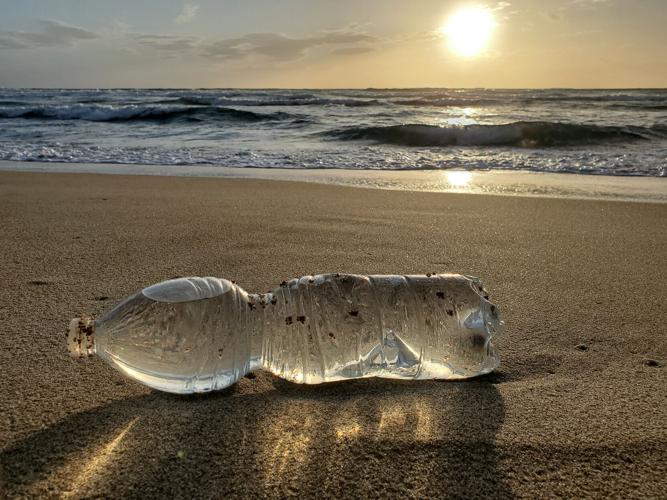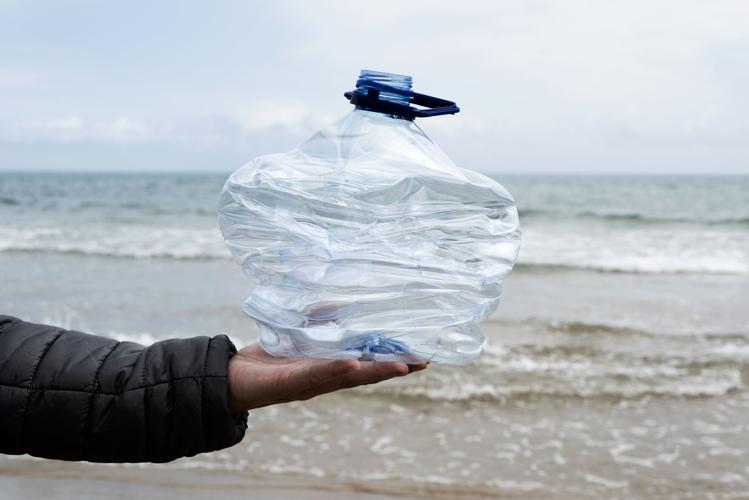Watching waves roll into a sandy shore against a backdrop of the deep blue ocean or the vast Great Lakes is breathtaking. Seeing trash clutter and pollute those pristine coastlines reminds us of our detrimental effect on earth's natural wonders. We share a responsibility to keep these treasures clean and beautiful for other creatures and our future generations.
Volunteering at a beach cleanup is a great way to give back to the community, prevent pollution, and keep public and private beaches debris-free. It also helps preserve birds, fish, and marine creatures' natural habitat.
You can join local or national beach cleanup efforts or organize and host an event. Here are three leading beach cleanup organizations that offer volunteer opportunities to become a part of the beach and marine pollution solution.
Surfrider Foundation beach cleanups
A handful of “visionary surfers in Malibu, California” founded the Surfrider Foundation in 1984. The nonprofit “is dedicated to the protection and enjoyment of the world������Ƶ ocean, waves, and beaches, for all people, through a powerful activist network.”
What started as a small, concentrated effort now includes over a million supporters, activists, and members. The organization contains over 170 volunteer-led chapters and student clubs in the United States.
Surfrider cleanups' impact
The impact Surfrider cleanups have made is astonishing. In 2022 alone, 13,138 volunteers removed 45,104 pounds of trash and recycling via 510 cleanups. The collective effort cleared 275,896 quantified items. (All data is current as of Aug. 17.) This is just so far this year.
The top 10 collection items included 73,339 cigarette butts, 19,083 plastic fragments bigger than a dime, 7,360 plastic beverage bottles, 7,200 plastic straws, 13,334 plastic bottle caps and rings, and more. Other debris includes foam cups and takeout containers, plastic food wrappers, plastic grocery bags, plastic forks, knives, spoons, balloons, cigarette lighters, and more.
Types of materials that contaminate beaches include plastic, metal, glass, rubber, paper, wood, and more. All these items damage beach habitats and can harm marine life. Photos of the heaping trash piles drive home just how devastating the beach and water pollution crisis is.
Getting involved
Surfrider������Ƶ expansive volunteer network conducts cleanups across “the West, East, Gulf, Great Lakes, Hawaiian, and Puerto Rican Coasts.” In 2018, the foundation launched the Better Beach Alliance with REEF to expand the effort.
To volunteer for a beach cleanup near you, fill out an online contact form to join a local Surfrider Foundation cleanup chapter.
Ocean Conservancy – “Fighting for trash free seas”
The Ocean Conservancy harnesses “the power of people to fight ocean trash” via the annual volunteer-driven International Coastal Cleanup®. For the ICC, volunteer organizations and people worldwide collect trash that pollutes waterways. Group and individual cleanup efforts span multiple countries and U.S. states and welcome volunteers of all ages.
Ocean Conservancy ICC impact
Since the ICC's founding 35 years ago, “17 million volunteers have collected more than 348 million pounds of trash.” An eye-opening infographic from the 2020 ICC Report offers some sobering statistics. For example, volunteers collected enough plastic grocery bags that year “to cover 1,196 Olympic-sized swimming pools, when laid flat.”
Of the millions of items volunteers collected over the ICC������Ƶ effort, the number of plastic straws and stirrers would stretch across the length of the Himalayas. That������Ƶ just one type of trash. The top 10 items ICC volunteers removed in 2020 include 964,521 cigarette butts, 627,014 plastic beverage bottles, 573,534 food wrappers, 272,399 plastic grocery bags, and more.`
Getting involved and tracking cleanup efforts
Getting involved in the fight to end ocean pollution is accessible via the ICC������Ƶ Clean Swell App. `Simply download the app, click “Start a New Cleanup,” and then record every item of trash you collect. See the total weight of the items, snap photos of debris, then raise awareness by sharing your results on social media.
On its website, you can find more detailed information and instructions on how to start your cleanup on Ocean Conservancy������Ƶ Start a Cleanup page.
Alliance for the Great Lakes – Adopt a Beach Campaign
The five Great Lakes are the largest in the United States. The Northern Midwest contains Lake Huron, Ontario, Michigan, Erie, and Superior, along the border between the U.S. and Canada.
The Alliance for the Great Lakes is a nonpartisan nonprofit that works to protect “the fresh, clean, and natural waters of the Great Lakes.” Thousands of volunteers and advocates mobilize under the Adopt a Beach program. Dedicated people collect litter on the sand and in the lakes. They also record data on the items they find to help researchers.
Teams have removed 489,723 pounds of litter from the Great Lakes. (Data is accurate as of Aug.14.)
Getting involved in Adopt a Beach
To join an existing Adopt a Beach cleanup, use the search tool to find the closest event. Or you can sign up to become a team leader and host your cleanup. Multiple resources include easy step-by-step instructions to lead your event in a handy How-to Guide.
Removing pollution at a beach cleanup is one vital action you can do to help protect and preserve beaches and waterways for marine wildlife and the next generation. We hope you join any of these hard-working nonprofits or use their guides to host a local or community event.
The Janesville Transit System is the primary provider of mass transportation in Janesville, Wisconsin. Using twenty vehicles, six regular routes are provided from Monday through Saturday. Late evening service is also available using the Nightline route deviation service. For more information visit:
Women's Wellness is presented by Janesville Transit Authority.












